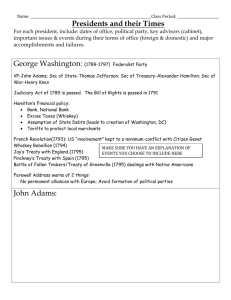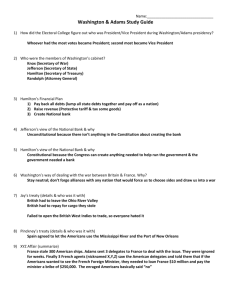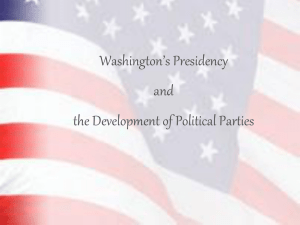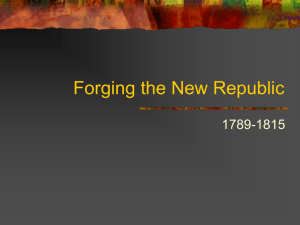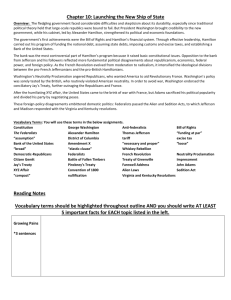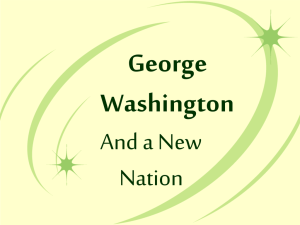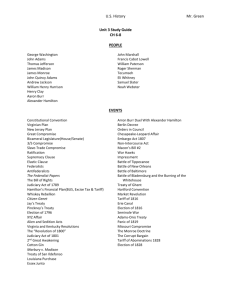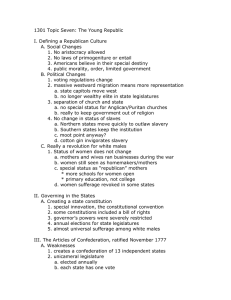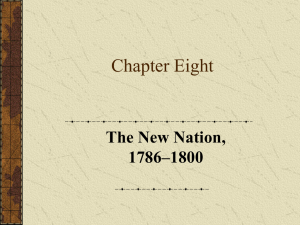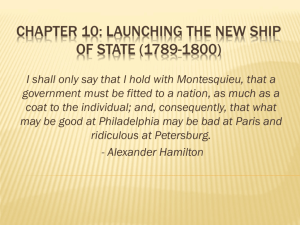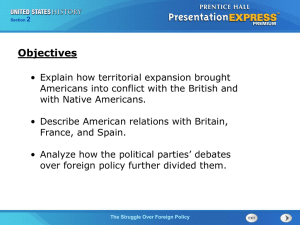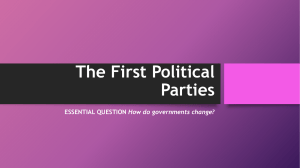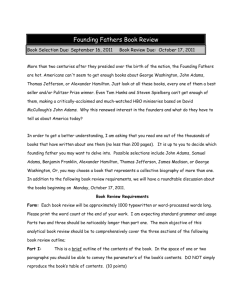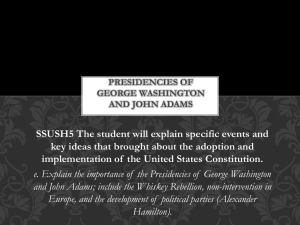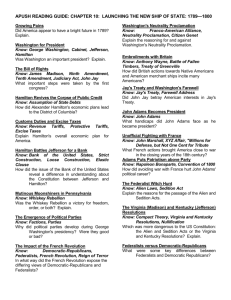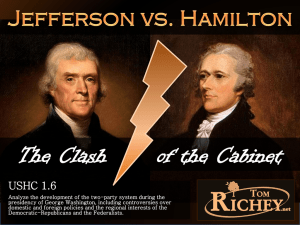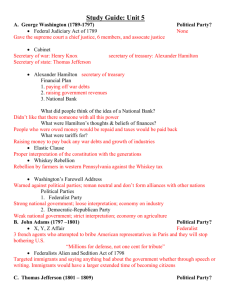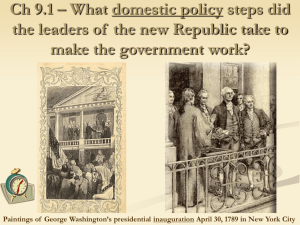ch 10
advertisement
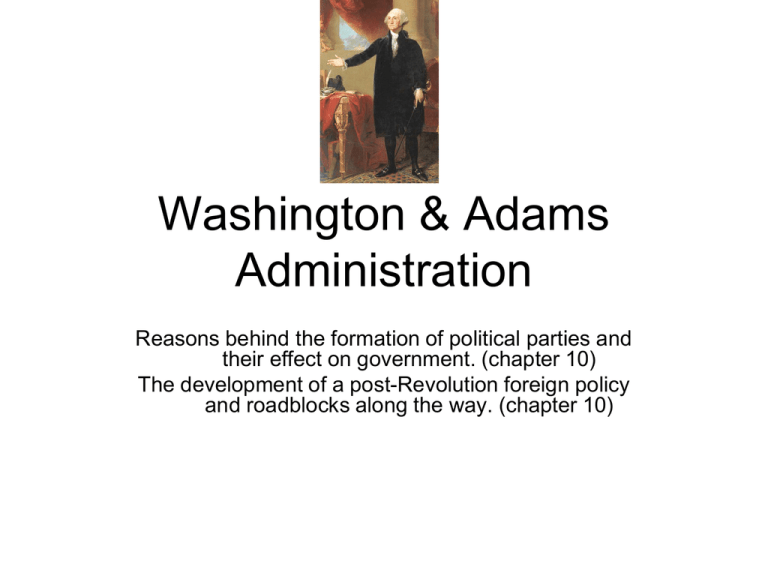
Washington & Adams Administration Reasons behind the formation of political parties and their effect on government. (chapter 10) The development of a post-Revolution foreign policy and roadblocks along the way. (chapter 10) Creation of a Presidential Cabinet • Shows use of “implied powers” • Created by Washington • First 3 departments 1) Secretary of State- Thomas Jefferson 2) Secretary of Treasury- Alexander Hamilton 3) Secretary of War- Henry Knox Economic Policy • Headed by Treasure Secretary Alexander Hamilton • Believed if gov. favored the wealthy in the long run all would benefit = stronger country • “trickle down” theory Hamilton's Assumption Bill • Wanted Congress to assume debts accumulated by the national gov. and states. • Believed that support from the wealthy would create a strong central gov. Virginia’s Bargain • Against assumption • Wanted District of Columbia to be located along the Potomac River • Agreed on assumption bill and bargain was made in 1790 • Washington D.C. is created “Father of National Debt” • Thanks to Hamilton U.S. in debt $75 million • Needed $$ to pay off debt • Look towards tariffs • Taxed Whiskey 7 cents a gallon The Whiskey Rebellion • • • • • Began in Pennsylvania in 1794 Challenged new government Tar and feathered revenue collectors Washington called in militia Proved Washington's administration was strong and commanded respect Issue of Banks and Constitution Hamilton v. Jefferson • Said what the Constitution did not forbid it permitted • Stated congress can pass any laws “necessary and proper” • If the national gov. was to collect taxes and trade it needed a bank • “loose construction” • Said the constitution had no written authority to est. a bank • Said it must then reside w/ states (10th Amendment) • “Strict construction” “Elastic Clause” To make all Laws which shall be necessary and proper for carrying into Execution the foregoing Powers, and all other Powers vested by this Constitution in the Government of the United States, or in any Department or Officer thereof. Political Parties Emerge • Political parties (fractions) emerge out of the new issues facing the nation • Created in 1790 as Jefferson and Madison organize opposition against a federal bank Hamiltonian • • • • Federalists Republicans Whigs Republicans Jeffersonian • DemocraticRepublicans • Republicans • DemocraticRepublicans • Democrats Foreign Policy Under Washington • French Revolution • Franco-American alliance of 1778 • Washington and Hamilton against helping French • Neutrality Proclamation of 1793 Jay’s Treaty • Jay’s Treaty- between Britain and U.S. • Britain agrees to evacuate posts on U.S. soil & pay for damages to American ships • U.S. to pay off debts (creates division between north and south) • France saw it as a violation of the FrancoAmerican Treaty Pinckney’s Treaty 1795 • Treaty w/ Spain who was fearful of an American alliance with Britain • Gave U.S. free navigation of Mississippi • North Florida Washington leaves office • Leaves after 2nd term (retires) • Federalists back John Adams (Washington’s VP) • Democratic-Republicans back Thomas Jefferson • Adams won 71 to 68 Electoral Votes Adams Administration • Aristocrat • Harvard Education • Did not appeal to the masses XYZ Affair • Adams sent an envoy to help fix relations w/ France headed by John Marshall • Instead of meeting the French Minister he met X,Y and Z • Asked for 32 million florins and another 250,000 dollars in order for the Americans to speak to Talleyrand. • Marshall refused and the U.S. prepared for war “Millions for Defense” • Navy Department created (expanded from its 3 ships) • Marine Corps reestablished • New army of 10,000 men The Little man and America • 1799 Napoleon Bonaparte becomes new French Minister • Adams sends envoys to France • Treaty of Convention 1800- peacetime military alliance between the two • U.S. agreed to pay damage claims of American Shippers Domestic Policy Under Adams • Issue of immigration from Western Europe 1. raised residence requirements from 5 years to 14 2. Alien Laws: President could deport “dangerous” persons even in time of peace 3. Sedition Acts- those who spoke out against the gov. would be fined & imprisoned (set to expire in 1801) The Virginia & Kentucky Resolutions • Jefferson & Madison challenge the Alien & Sedition Acts • Compact Theory- individual states were to be the final judges of the Federal gov. overstepping its “compact” • Used as a platform for the election of 1800
